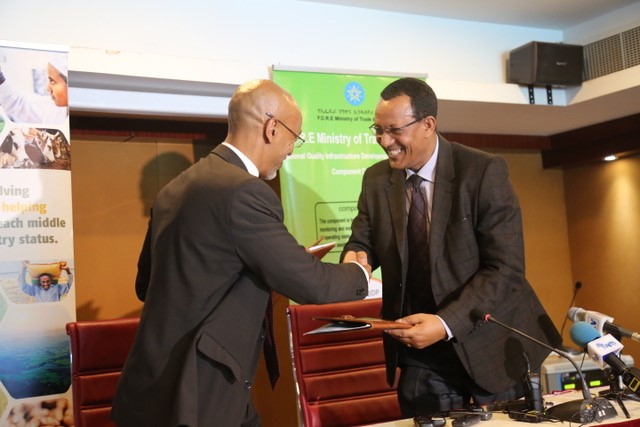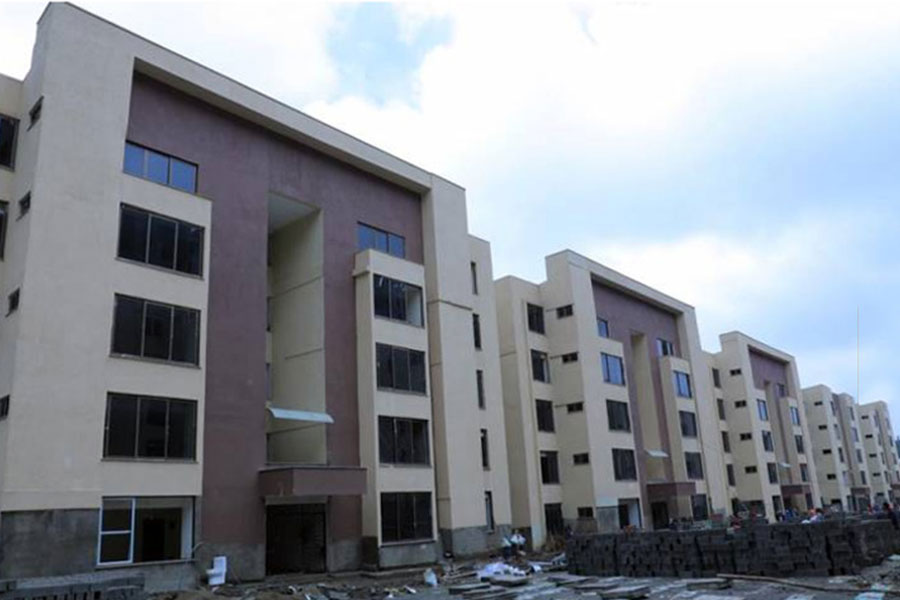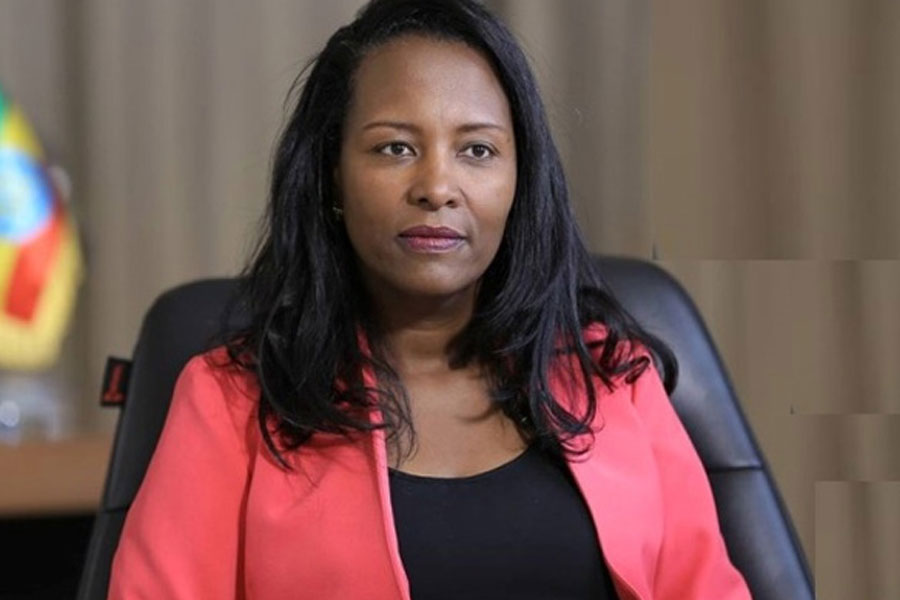
Radar | Jan 03,2021
Jul 10 , 2020
By HENOK TERECHA ( FORTUNE STAFF WRITER )
With support from the Agricultural Transformation Agency, smallholder farmers in Arsi Zone, Oromia Regional State have started organising themselves into crop-specific clusters to increase productivity.
Dubbed Farmers Production Cluster (FPC), the scheme will enable the farmers with adjacent farmlands to undertake all the processes of farming, starting from ploughing to harvesting, at the same period of time. The farmers will also cultivate the same types of cereals. For the project, the Agency organises volunteer farmers and trains them to practise mechanised farming.
The initiative is part of the larger Agricultural Commercialisation Clusters (ACC) project that was developed and tested over the past two years. ACC was officially launched last November with the presence of President Sahle-Work Zewdie and European ambassadors at a ceremony held at the UN-ECA premises in the capital.
The Agency has allocated 378 million dollars for ACC to include over five million farmers in the programme over the coming five years. It will be implemented in 300 selected weredas grouped into 31 crop clusters. FPC clusters consist of 30 to 60 farmers.
The European Union and its member states largely provided funding for the programme, with major contributions from Denmark with 47 million euros, the Netherlands with 42.5 million euros, and the European Union with 10 million euros. The Agency signed the agreement with the EU, Denmark and the Netherlands for a total of 115 million dollars in assistance for the programme.
So far, the Agency has organised 3.6 million farmers from four regional states under the ACC, of which 1.3 million of them are under FPC. It expects the number to reach 2.5 million under FPC. The initiative has been joined by farmers in Oromia, Amhara, Southern Nations, Nationalities & Peoples' and Tigray regional states.
Under the programme, the Agency has identified 10 types of cereal crops, fruits and vegetables. So far, it has started the project with teff, wheat, malt barley, maize and sesame. It is now piloting banana, papaya, avocado, tomato and onion, which are planned to be launched in the coming fiscal year.
With the former system named cluster farming, the farmers were only producing for their own consumption, according to Techane Adugna, director of the Agricultural Commercialisation Programme at the Agency, which is providing training on the usage of technicall machinery and creating awareness about the concept of commercialisation.
"The new farming system will enable them to harvest for commercial purposes," he said.
The programme also aims at organising these farmers into a company that processes and adds value to their agricultural products and commercialises them for a better price, according to Techane.
It is also assisting the farmers' progress through the five stages, namely pre-basic, basic, intermediate, advanced and company.
Feyisa Buta, a farmer and coordinator of the programme at Arsi Zone's Lodi Hetosa Wereda, says that the programme will pave a way for him to upgrade himself into a company. He has 206ha of land on which he cultivates major cereal crops including wheat.
"I want to build a wheat flour processing plant and become a commercial farmer using this opportunity," he told Fortune.
The programme also aims at ensuring sustainability, helps the farmers adopt mechanisation in a well-organised manner, enables them to gain bargaining power while commercialising their products and avoiding brokers in the marketing chain, according to Techane.
The Agency is also preparing 10 mechanised centres in the selected areas. It is also working on a market linkage platform that will help farmers find buyers for their products. So far, it linked malt barley farmers with different brewers including Heineken Ethiopia and Diageo.
Bekelu Teshome, a senior lecturer at the School of Agricultural Economics, Agribusiness & Value Chain Management at Haramaya University, supports the Agency's initiative, saying that it will potentially improve the farmers' economic status.
"The initiative isn't new though," she said. "It has been practised before, but this one further incorporates helping the farmers upgrade themselves into companies."
Bekelu also appreciates the project's effort in creating a market linkage for their products. But it should get even more attention, since marketing is the major problem of the farmers.
"Farmers are still very challenged in finding markets for their products," she said.
Bekelu recommends the Agency highly focus and work on a frequent follow up and periodical monitoring and evaluation of the programme.
"Most of the time, new and large programmes like this face various challenges,” Bekelu said.
PUBLISHED ON
Jul 10,2020 [ VOL
21 , NO
1054]

Radar | Jan 03,2021

Radar | Jun 27,2020

Fortune News | Jun 23,2019

Radar | Dec 24,2022

Fortune News | Jun 01,2019

Viewpoints | Nov 25,2023

Agenda |

Fortune News | Jun 25,2022

Radar | Jun 17,2023

Fortune News | Dec 28,2019

Dec 22 , 2024 . By TIZITA SHEWAFERAW
Charged with transforming colossal state-owned enterprises into modern and competitiv...

Aug 18 , 2024 . By AKSAH ITALO
Although predictable Yonas Zerihun's job in the ride-hailing service is not immune to...

Jul 28 , 2024 . By TIZITA SHEWAFERAW
Unhabitual, perhaps too many, Samuel Gebreyohannes, 38, used to occasionally enjoy a couple of beers at breakfast. However, he recently swit...

Jul 13 , 2024 . By AKSAH ITALO
Investors who rely on tractors, trucks, and field vehicles for commuting, transporting commodities, and f...

Oct 18 , 2025
The political establishment, notably the ruling party and its top brass, has become p...

Oct 11 , 2025
Ladislas Farago, a roving Associated Press (AP) correspondent, arrived in Ethiopia in...

Oct 4 , 2025
Eyob Tekalegn (PhD) had been in the Governor's chair for only weeks when, on Septembe...

Sep 27 , 2025
Four years into an experiment with “shock therapy” in education, the national moo...